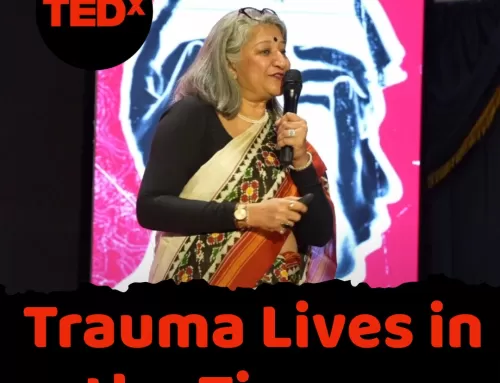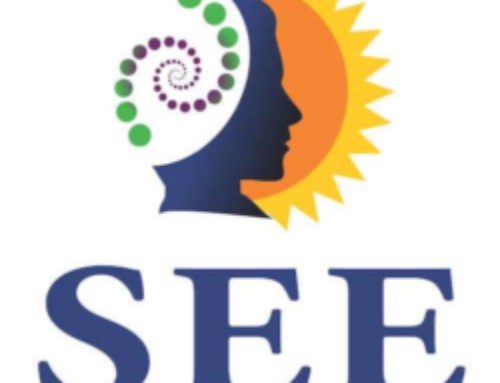Team Wellness Space presents several abstracts at the 32nd Annual Convention of National Academy of Psychology, NAOP 2023, at Ahmedabad University. All the abstracts are listed below:
Oral Presentation 1 – The impact of social media usage on well-being, anxiety & depression, sleep quality
By Gunjan Y Trivedi ([email protected], +91.9574742288),
Heer Vaghela, Hemalatha Ramani, Riri G Trivedi
Abstract:
Social media’s impact on mental health is well-documented and backed by scientific evidence. Based on review of literature, two hypotheses were propounded, 1) increased social media usage is linked to a negative impact on several mental health parameters, and 2) there is dose-response relationship between the hours spent on social media and mental health (i.e., as usage increases, there is increased negative impact on mental health).
The study explored if and to what extent the increased social media usage impacts the subjective mental health measures. In dose-response impact evaluation, the focus was on the number of hours spent daily on social media and the impact on mental health.
Objective:
Does increased social media usage (0-2 hours: low, 2-4 hours: medium, 4-6 hours: high, >8 hours: very high) result in dose-response impact on several mental health parameters.
Methods:
Based on social media-based enrollment, several global Indians participated in the online research to understand their social media usage and mental health parameters. The mental health parameters included well-being (WHO-5 Wellbeing index), anxiety (GAD-7), depression (Major Depression Inventory-MDI) and sleep quality (Insomnia Severity Index-ISI). The analysis included insights from 302 respondents.
Results:
The results highlighted that as the number of hours spent on social media increased (dose-response), all mental health parameters showed adverse trends: increased anxiety & depression, poor sleep quality and a decrease in subjective well-being.
Conclusion:
Increased doses of social media consumption appear to have a cumulative negative impact on all mental health parameters.
Keywords:
Social media usage, mental health, sleep quality, anxiety, depression, subjective well-being
Symposium – Adverse Childhood Experiences (Childhood Trauma) & Mental Health
There are five different presentations as part of the above symposium. Each abstract is highlighted below.
Abstract # 1: Adverse Childhood Experiences (Childhood Trauma), Anxiety, Depression, and Subjective Well-being of Adult Indians
Presenter: Riri G Trivedi & Gunjan Y Trivedi
Abstract:
There is overwhelming evidence linking Adverse Childhood Experiences with poor quality of life and health outcomes. However, limited work is done in this area in India, a country with >400 million children and adolescents.
Objective:
To review the evidence between ACE (Adverse Childhood Experiences) and mental health parameters (psychological well-being, anxiety & depression, sleep quality) in convenience sampling at a wellness center in India.
Methods:
The individuals who approached the center (N=550_ seeking help with various mental health issues were assessed based on presenting symptoms for 16 specific ACEs (self-assessment followed by personal interview). Additional self-assessment on well-being (WHO-5 well-being index), anxiety (GAD-7), depression (MDI), and sleep quality (ISI) was also completed. The statistical analysis (one-way ANOVA) assessed the correlation between the ACE categories (high, medium, and low) and various mental health parameters.
Results:
The results show that the higher ACE group had significantly higher anxiety, depression, and sleep disruption than the lower ACE group. While the well-being was poor for the high ACE group compared to the low ACE group, the data was not statistically significant.
Conclusion:
The results indicate that high ACE exposure negatively affects mental health as measured by anxiety, depression, and sleep quality.
Keywords: Adverse Childhood Experience, Mental health, Childhood Trauma (or Inner Child), Well-being, Anxiety & Depression
Abstract # 2: The Importance of Personal Interviews in Assessing Adverse Childhood Experiences (Childhood Trauma) in India
Presenter: Gunjan Y Trivedi
Other contributors: Riri G Trivedi, Hemalatha Ramani
Abstract:
Ample evidence has established the linkage between Adverse Childhood Experiences (ACEs) and adult mental health. Therefore, identifying ACEs is critical in the therapeutic journey to resolve mental health challenges effectively. Unfortunately, evidence shows that mental health service providers fail to capture most occurrences of ACEs. The study evaluated the agreement between self-assessment and follow-up personal interviews in ACE scores at a wellness center in India.
Objective:
The objective of this study is to review the effectiveness of the therapist-facilitated personal interviews in ACE assessment vs. self-reporting alone in a convenient sampling of Indians at a Wellness Centre.
Methods:
This study aimed to understand whether the therapist’s additional personal interview adds significant value to identifying the ACEs. The study gathered information on the total ACE scores and individual ACE elements in subjects with (a) self-assessment alone and (b) self-assessment and personal interview-based assessment. Total ACE scores and individual ACE elements in the 550 subjects were compared using one and both methods of information gathering. Paired t-test was used for statistical analysis to compare the outcomes.
Result:
The results indicated significant changes (increases) in assessed individual ACE elements and total ACE scores, leading to the conclusion that a personal interview is a more effective and preferred method for assessing ACE.
Conclusion:
The study validated that a self-assessment followed by personal interview is more effective in identifying adverse childhood experiences than the self-assessment alone at a wellness center in India.
Keywords:
Adverse Childhood Experiences (ACEs), Childhood Trauma (or Inner Child), Post Traumatic Stress Disorder (PTSD), ACE assessment
Abstract # 3: A pilot study to understand the presence of Adverse Childhood Experiences (Childhood Trauma) in adults with Post-Traumatic Stress Disorders at a well-being center in India
Presenter: Heer Vaghela/Hemalatha Ramani
Other contributors: Gunjan Y Trivedi, Riri G Trivedi
Abstract:
Background:
The linkage between Adverse Childhood Experiences (ACEs) and the risk of Post-Traumatic Stress Disorder (PTSD) is backed by solid evidence. Given the accepted role of several ACEs as precursors to PTSD in the later stages of life (adulthood), there is an opportunity to study the presence of ACEs in PTSD-assessed individuals.
Objective:
The study aimed to understand the prevalence of ACEs in the subjects assessed with PTSD.
Methods:
The individuals who approached the wellness center (in India) seeking help with various mental health issues were assessed based on presenting symptoms. A follow-up interview was conducted to review the ACEs relating to incidents between 3 and 18. Based on their presenting symptoms, 60 individuals were identified with PTSD (assessed by the trained therapists using a PCL-C survey). Descriptive statistics evaluated the presence of several ACE elements in the subjects with PTSD.
Results:
The findings indicate that several ACEs, specifically repeated exposure to emotional abuse, physical abuse, sexual abuse, emotional neglect, domestic abuse, mental health challenges in the family, peer rejection, and parents having verbal/physical fights are present in these PTSD-assessed individuals. These ACEs represented two main categories, interpersonal ACEs (where the individual is at the center of the experience vis a vis an observer) and the home environment.
Conclusion:
The research found co-occurrences of interpersonal and violent family environment-related trauma in PTSD-assessed subjects. Based on the assessment at a wellness center, the findings suggest a strong influencing role of these ACEs in adult PTSD assessment.
Keywords: Post Traumatic Stress Disorder (PTSD), Adverse Childhood Experiences (ACE), Childhood Trauma (or Inner Child)
Abstract # 4: A pilot study to understand the presence of adverse childhood experiences (childhood trauma) in adults with a history of suicide attempt at a well-being center in India
Presenter: Neha Pandya
Other contributors: Gunjan Y Trivedi, Hemalatha Ramani, Riri G Trivedi
Abstract:
Background:
Suicide is India’s leading cause of death among adolescents and young adults. Evidence has highlighted the link between adverse childhood experiences (ACE) and suicidal behavior. The study attempts to understand the presence of ACEs among individuals with a history of suicide attempts at a well-being center in India.
Objective:
The study aimed to understand the prevalence of ACEs in subjects with a history of suicide attempts.
Methods:
The individuals who approached the center seeking help with various mental health issues were assessed based on presenting symptoms. A follow-up interview was conducted to review the ACEs and understand any history of suicide attempts. The descriptive statistics data (N=50) with a self-reported history of suicide attempts was summarised to study the presence of several ACEs. During the interview, suicide attempts were distinguished from suicidal ideation and self-harm. It should be highlighted here that 1 in 5 suicide ideations could become an actual suicide attempt.
Results:
The findings indicate several ACEs, specifically repeated exposure to abuse (emotional, physical, and sexual), emotional neglect, peer isolation, regular fights between parents, and caregivers’ mental health issues, are present in the individuals who reported having a history of suicide attempts. This confirms the role of ACEs in suicidal behaviour across the lifespan.
Conclusion:
Several interpersonal and home environment-related traumas were identified in individuals with self-reported suicide attempt. Based on the assessment at a wellness center, the findings suggest a strong influencing role for these ACEs in individuals with a history of suicide attempts.
Keywords: Suicidal behavior, Suicide attempt, Adverse Childhood Experiences (ACE), Childhood Trauma (or Inner Child)
Abstract # 5: Parenting and Adverse Childhood Experiences (childhood trauma): a generational legacy?
Presenter: Riri G Trivedi
Other contributors: Gunjan Y Trivedi, Hemalatha Ramani
Abstract:
The role of the home environment (violence, interpersonal adversity) is critical during early childhood. Parents’ childhood trauma exposure also increases their risk of creating more adversity for their children. It often becomes a self-perpetuating cycle from generation to generation.
Aim:
This study evaluates the influence of home environment-related trauma events on adults’ mental health.
Methods:
The study evaluates (a) qualitative insights from 550 individuals’ self-assessment data on ACEs and several mental health parameters to understand how parenting behaviors result in long-term health implications for children when they grow-up, (b) studies >25 parents (couples) qualitative interview data to understand if their childhood trauma manifests in their parenting styles and relationships, (c) >25 sets siblings qualitative interviews data to understand the manifestation of trauma relating to the home environment and parenting style. The insights are summarized to identify key negative parenting behaviours and their impact, as well as highlight recommendations for parents.
Results:
The parenting style and parents’ ACE exposure significantly impact children’s mental health when they grow up. The qualitative insights (both in identifying what to pursue and what to avoid) can be insightful for parents and caregivers of young children in India.
Conclusion:
Parents’ role and childhood trauma are critical areas of focus to improve the children’s overall mental health and well-being.
Keywords:
Parenting, childhood trauma, home environment
To learn about childhood trauma, pls review the details below on the training on Healing the Child Within orInner Child Healing and Integration
Module 3 – Healing the Child Within (Inner Child Integration and Healing) covers how to identify and address the impact of childhood trauma. It is relevant for all the psychologists, psychotherapists and psychiatrists.






Leave A Comment